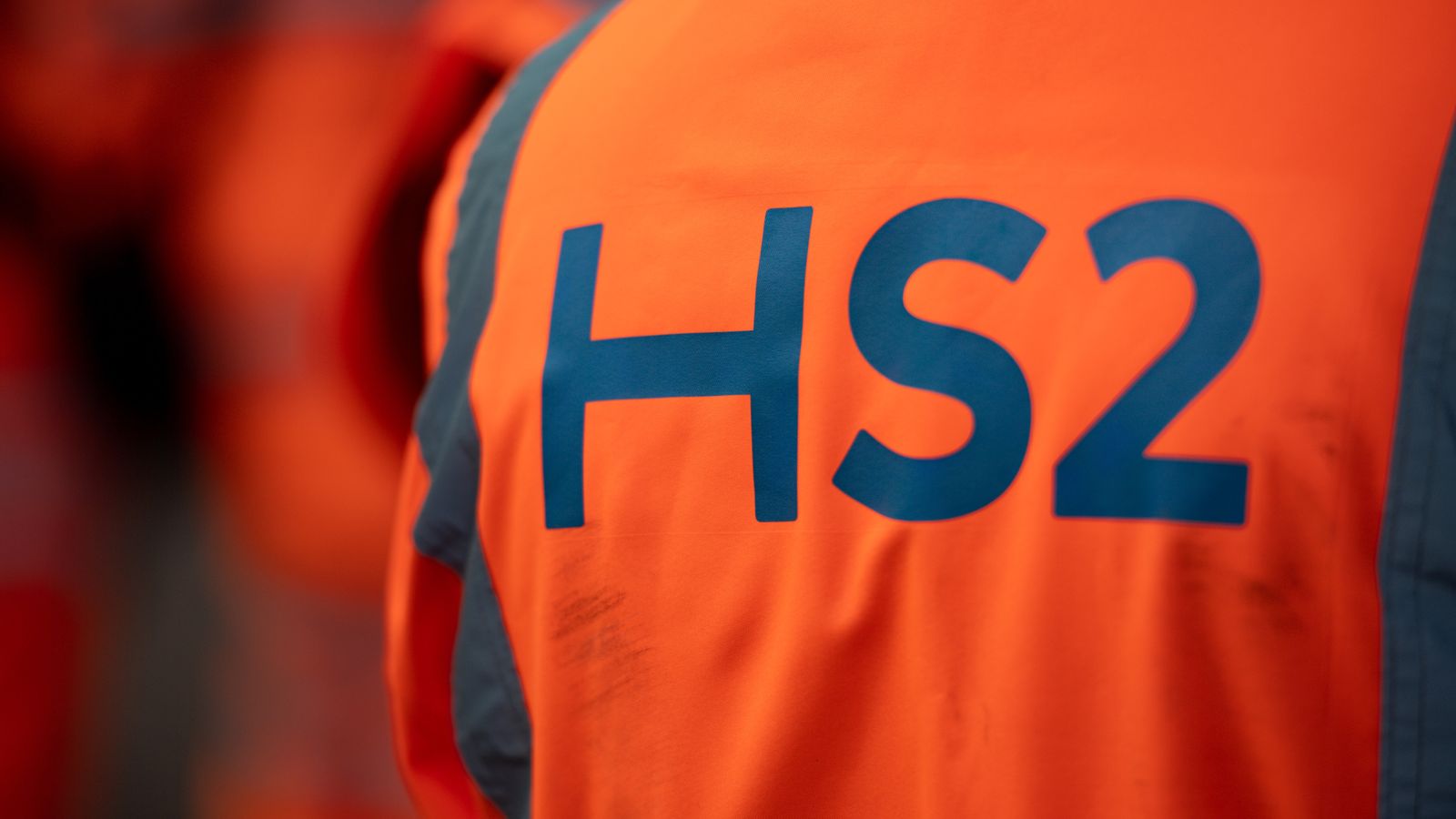HS2 has been rated as “unachievable” as part of an annual report from a government watchdog.
The Infrastructure and Projects Authority (IPA) gave the first two phases of the troubled high speed rail project a “red” rating, saying the whole plan may need to be “reassessed”.
The project has been hit by ever-increasing costs – with estimates rising from £33bn in 2010 to at least £71bn.
The building work has faced multiple delays, both on the first leg between London and Birmingham, and the second leg, which extends the track up to Crewe.
The initial opening date of 2026 has fallen back to 2033, with the line possibly not reaching Manchester until 2040.
The government announced further delays to HS2 earlier this year in an effort to “balance the books” after inflation hit the cost of materials.
But analysis exclusively leaked to Sky News showed the two-year pause in works would end up being three-and-a-half years, and was likely to cost the taxpayer at least £366m.
In its report, the IPA said: “Successful delivery of [HS2] appears to be unachievable.”
The watchdog added there were “major issues with project definition, schedule, budget, quality and/or benefits delivery, which at this stage do not appear to be manageable or resolvable”.
As a result, it said the project “may need re-scoping and/or its overall viability reassessed”.
This latest criticism comes in the same month that HS2 Ltd’s chief executive, Mark Thurston, announced he would be resigning from his post in September.
A Department for Transport spokesman said: “Spades are already in the ground on HS2, with 350 construction sites, over £20bn invested to date and supporting over 28,500 jobs.
“We remain committed to delivering HS2 in the most cost-effective way for taxpayers.
“HS2 will bring transformational benefits for generations to come, improving connections and helping grow the economy.”

